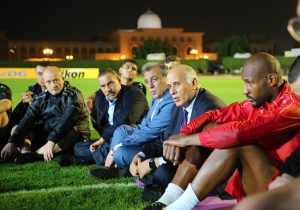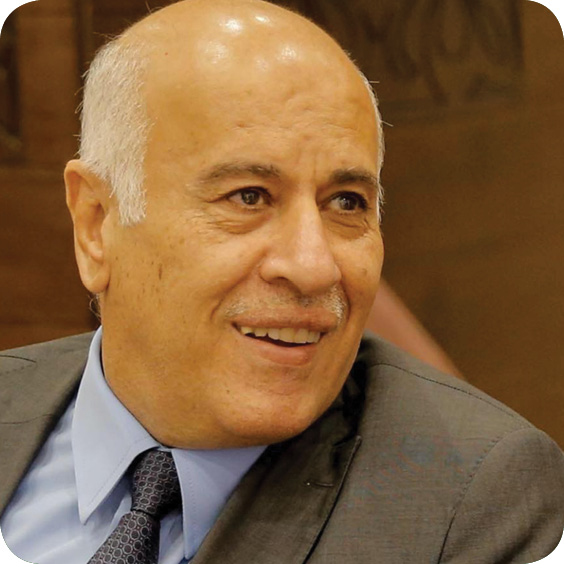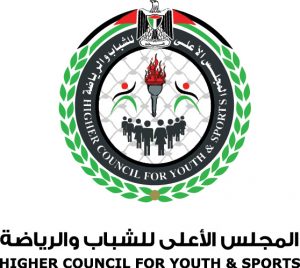President of the Higher Council for Youth and Sports
Palestinian youth are our top priority, and we are working hard within the community to strengthen their steadfastness and expand their opportunities in order to secure a better future. In line with our vision and mission, and emanating from the cross-sectoral strategic plan of the Higher Council for Youth and Sports (HCYS), we stress the importance of joint and integrated action for all that serves the issues that concern youth at home and abroad. We have been very diligent regarding the advancement of young Palestinians in various aspects, and we are proud to acknowledge our remarkable success in promoting youth participation, where the essence of citizenship is participation and, of course, gender equality.
Our strong contractual relationship with youth makes us passionate about seeking to develop a future for young people. Our ultimate goal is to create a generation of ambitious young people who have their own goals; youth who are innovative, creative, and qualified.
This is our vision at HCYS and the cornerstone of everything we work for. In this spirit, the HCYS focuses on the motivational principles of participatory youth work. The most important aspect of community activism in Palestine is allowing the young people themselves to build personal skills through training in order to deal with the issues that they consider to be priorities.
Through our extended branches at home and abroad, we seek to promote community participation programs, strengthen national belonging, work diligently to facilitate successful experiences in youth work, and expand the scope of work to include all parts of the country. In addition, our efforts include guidance programs, leadership building, empowerment through local youth initiatives, national campaigns, greater integration of youth in community development, youth programs for personal and professional development, enabling social mobility, and the activation of national advocacy campaigns to raise awareness and build capacity.
A crucial means used to implement these goals is our annual summer camp program that aims to empower adolescents and increase their skills and knowledge in order to engage more fully in their communities. Entertainment and educational activities serve to enhance life skills and contribute to the development of a talented and an innovative young generation. Hundreds of such summer camps are implemented annually, benefiting more than thirty thousand adolescents in the various governorates throughout the country and in the diaspora. The camps are preceded by a massive training program that aims to prepare teams to plan and implement the youth camps.

Photo courtesy of the Palestinian Football Association.
In keeping with the HCYS priority of promoting the legal environment in youth work, the General Directorate of Clubs and the Youth Institutions Department have designed databases of sport clubs and youth institutions to provide quick and accurate access to information. The data is updated in accordance with the changes in clubs and institutions.
The HCYS, through its commitment to strengthening infrastructure, wholeheartedly supports the establishment and construction of many sports facilities in order to welcome the youth of all Palestinian governorates who are passionate about sports.
Youth employment is yet another HCYS priority. Programs are being created to improve the lives of all youth, new graduates in particular, through activating youth groups where experiences of success can be shared in order to enrich youth work in Palestine. The HCYS has played an important role in motivating and facilitating these groups through the formation of the Community Participation Committee and volunteer work with the HCYS and Palestinian universities.
The HCYS also believes in the importance of youth get-togethers, which come within the framework of strengthening relations with youth around the world. Such gatherings are held at the local, regional, and international levels and include such activities as field visits to Palestinian cities, Palestinian universities, and tourist and archaeological sites; meetings with decision-makers; and heritage evenings. These visits contribute to the strengthening of Arab and international relations, the exchange of skills, and the identification of tourist, archaeological, and Palestinian symbols. The participants meet with their peers who are living under occupation and learn about the impact of the occupation on the development of the Palestinian territories. These meetings seek to encourage young ambassadors from all over the world to influence and pressure decision-making in international forums.
The HCYS considers volunteer work to be an important pillar of its strategy and implements the annual national voluntary campaign for olive picking in most governorates and regions of the country. The campaign aims to strengthen the steadfastness of citizens in the face of occupation and land confiscation, especially in the marginalized areas that are near the apartheid wall. It also provides citizens with moral and material support and will expand to include more areas through the efforts of the subcommittees. Approximately 600 volunteers from the local community, universities, institutions, and youth groups participate in these campaigns in order to promote a culture of volunteering in these targeted areas.
Finally, we dream of comprehensive national development that provides a national identity and a high degree of ownership of and commitment to any program that garners national consensus and is open to the values and experiences of the world. This is our only way to remain steadfast and build bridges between us and the world in order to be integrated into the global reality. Otherwise, we will remain isolated and besieged by the world, and thus lose our identity.



